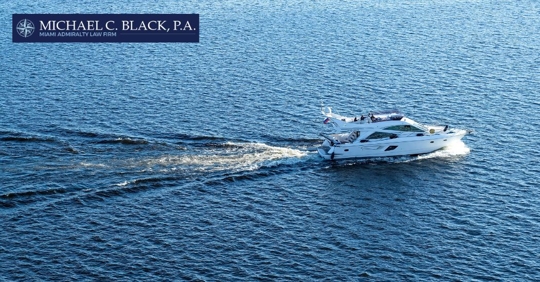Boating is a beloved pastime, especially in Florida, where the sunny weather and abundant waterways provide the perfect setting for leisure on the water. However, boating accidents can quickly turn an enjoyable day into a devastating experience. If you've been involved in a boating accident, understanding its causes and knowing how to establish liability can make a significant difference in seeking the justice and compensation you deserve.
Common Causes of Boating Accidents
Boating accidents occur due to a variety of reasons, often stemming from negligence, misconduct, or unforeseen circumstances. Below are some of the top causes:
1. Operator Negligence
- Failing to pay attention to navigational rules
- Reckless driving or high-speed maneuvers
- Operating under the influence of alcohol or drugs
- Distracted operation, such as using a mobile phone
2. Poor Weather Conditions
- Sudden storms or high winds reducing visibility and control
- Rough waters that are challenging to navigate
- Negligence in checking weather forecasts before heading out
3. Mechanical Failures and Lack of Maintenance
- Engine malfunctions or inadequate vessel maintenance
- Steering or electrical system failures
- Using a boat with faulty or outdated equipment
4. Overloading or Improper Loading of Passengers and Cargo
- Exceeding the vessel's weight capacity
- Unevenly distributed weight, causing instability
- Standing or moving around improperly while the boat is in motion
5. Lack of Proper Safety Equipment
- Insufficient or missing life jackets and flotation devices
- Non-functional communication tools, such as radios
- Absence of fire extinguishers, first aid kits, or emergency equipment
6. Collisions with Other Vessels or Objects
- Failure to adhere to right-of-way rules
- Poor visibility or failure to use navigation lights at night
- Unawareness of fixed or submerged hazards like buoys, docks, or reefs
Each of these causes often ties to levels of negligence that contribute to accidents. Determining how and why the accident occurred is a key component in proving liability.
How to Prove Liability in a Boating Accident
Accidents involving boats are unique and often complex to litigate due to overlapping regulations under both maritime and state laws. Proving liability requires sound evidence and a clear understanding of legal principles. Below are essential steps to establish responsibility after a boating accident:
1. Document the Incident
- Take photos or videos of the accident scene, including damages to the vessel and injuries sustained.
- Record the conditions of the water, weather, and visibility at the time of the accident.
- Obtain contact information and testimony from witnesses who saw the incident.
2. Establish Negligence
- Determine if the operator violated navigational rules, such as speed limits or right-of-way guidelines.
- Review the operator’s history for instances of recklessness or intoxication.
- Investigate whether the vessel was properly maintained and equipped.
3. Secure the Police or Incident Report
- Contact law enforcement or the U.S. Coast Guard immediately following the accident.
- Obtain a copy of the official report as it often contains crucial details about the incident.
4. Examine Applicable Laws
- Familiarize yourself with Florida's regulations for watercraft safety and operations.
- Consider federal maritime laws, as these may apply depending on the location of the accident.
5. Consult an Experienced Maritime Attorney
- Maritime law is a specialized field, and legal expertise is critical when navigating these cases.
- An experienced attorney can collect and analyze evidence, interview witnesses, and build a solid case on your behalf.
- They will ensure that deadlines for filing are met and help negotiate or litigate for proper compensation.
6. Prove Damages
- Document and quantify all losses, including medical bills, property damage, lost income, and pain and suffering.
- Use expert witnesses, such as accident reconstruction specialists or medical professionals, to substantiate your claims.
Why Legal Representation Is Key
Boating accident cases can involve intricate legal and procedural complexities. Having a competent attorney is crucial to ensuring your rights are protected. At Michael C. Black, P.A., we specialize in maritime law and are passionate about helping maritime accident victims secure the justice and compensation they deserve. Our team understands the challenges involved in maritime injury cases. You can trust that we will work relentlessly to advocate on your behalf.
Boating accidents can leave victims facing not only physical injuries but also emotional and financial turmoil. Remember that you can protect your rights and seek justice.
If you or a loved one has been involved in a boating accident in Florida, consult with our experienced legal team at Michael C. Black, P.A.. We combine extensive experience in maritime law with a strong dedication to advocating for our clients’ best interests.
Contact us today at (305) 964-8792 for a free consultation and take the first step toward protecting your rights.

